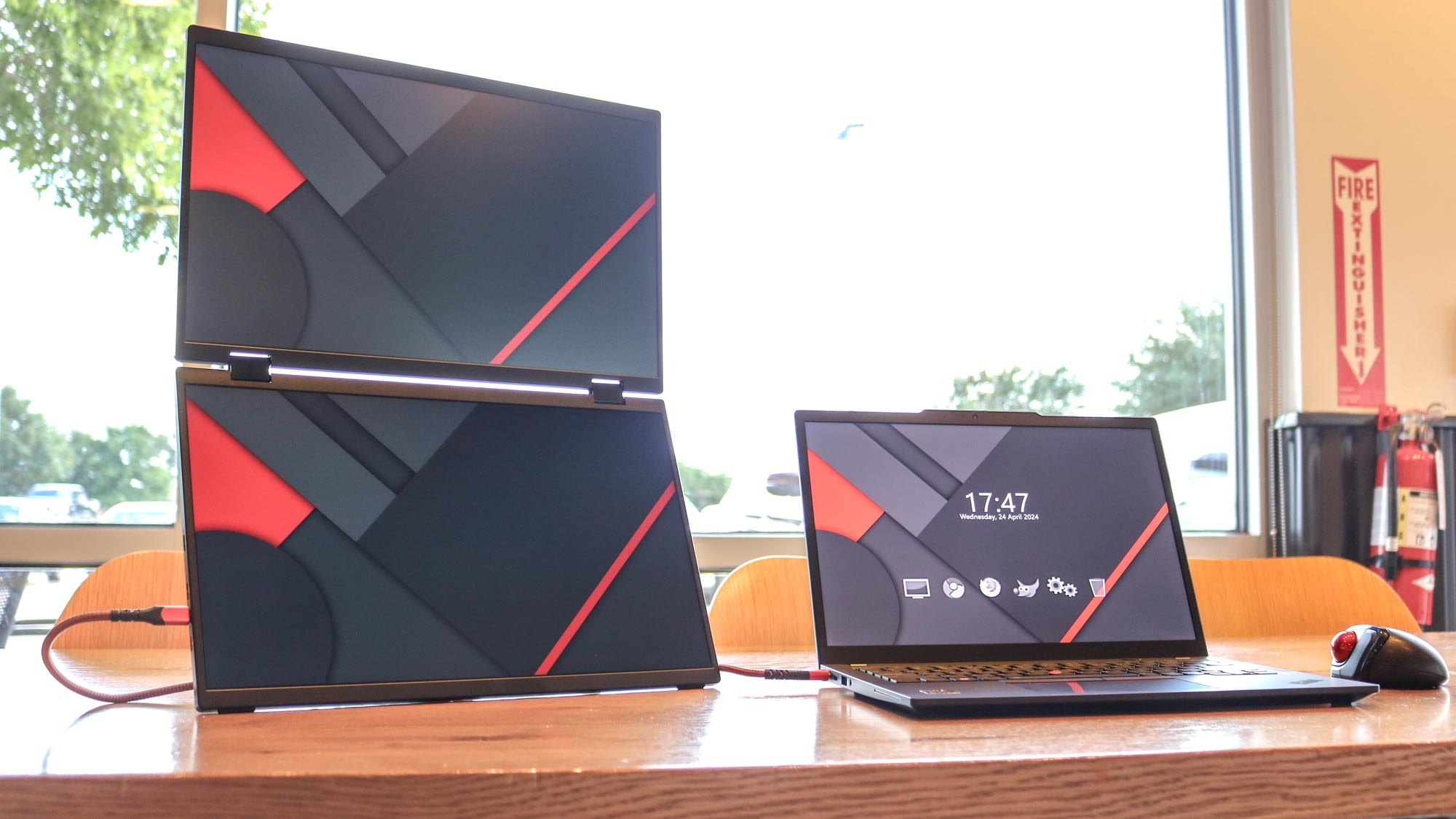
One of the best things about working from home is that you aren’t limited to a single screen. Sure, you can use one of the best laptops for most of your work but sooner or later, you’re going to realize you need more space.
Adding a second monitor to your desk setup is surprisingly easy and once you do, you may find it hard to go back to using a single display. I have a multi monitor setup at home and when I do need to work from just a laptop — either while traveling or at a coffee shop — it can be really jarring going back to having only a single screen.
After buying a cheap portable monitor on a whim to use as part of a Raspberry PI setup I built last year, I decided to take it with me on a work trip. Going from one to two displays was a game changer, and unlike the portable monitors I’ve used in the past, this one from UPERFECT ($90, Amazon) connected to my laptop using a single USB-C cable for both video and power. I liked it so much that when I decided to add a touchscreen display underneath my ultrawide monitor at home, I picked up another portable monitor from the same company.
While I have considered putting a portable monitor on either side of my laptop for a three-screen setup, this would likely be quite bulky and more difficult to set up and break down in a hurry. It was then that UPERFECT reached out to me about testing one of their latest portable monitors. However, instead of a single screen, the UStation Delta ($500, UPERFECT) actually has two that are stacked on top of each other.
Here’s what it’s been like using the UStation Delta both at home and while out and about and why a folding, dual-screen portable monitor has now become my favorite travel accessory. In fact, I now couldn’t see myself traveling without it.
From a clamshell to dual displays
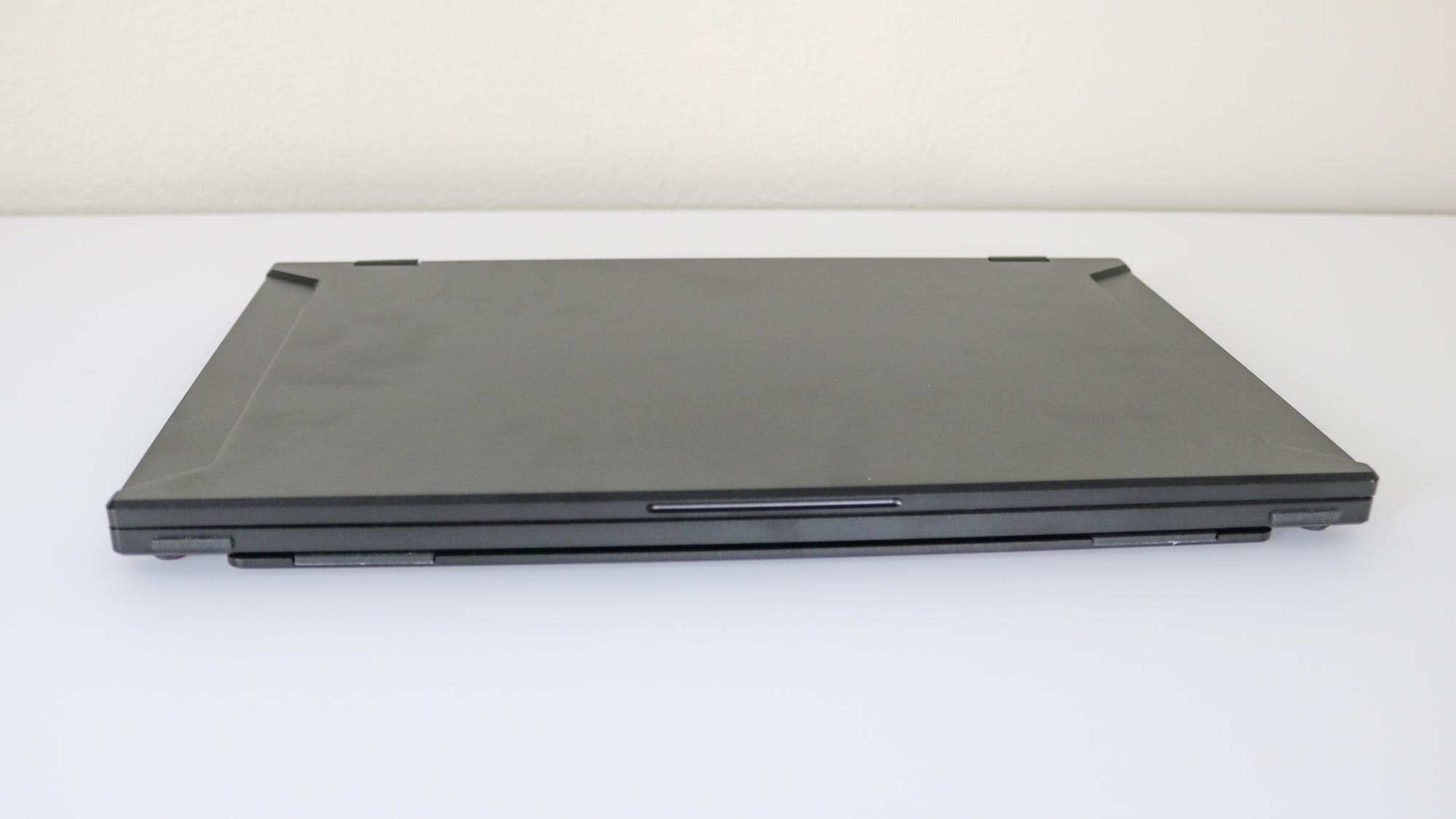
At first glance, the UStation Delta looks more like a laptop than a portable monitor, especially with its black aluminum outer shell. The device is just over 14 inches across, 8.66 inches from top to bottom and is 0.87 inches thick if you include its built-in stand. As such, you’ll have no trouble fitting the UStation Delta into a backpack.
Even though it has not one but two displays, it’s actually just slightly thicker than the first UPERFECT monitor I got. Meanwhile, my other portable monitor with a touchscreen and a built-in 10,800 mAh battery is the thinnest of the bunch at just under 0.5 inches. The extra thickness is worth it though as you get an additional screen to work with.
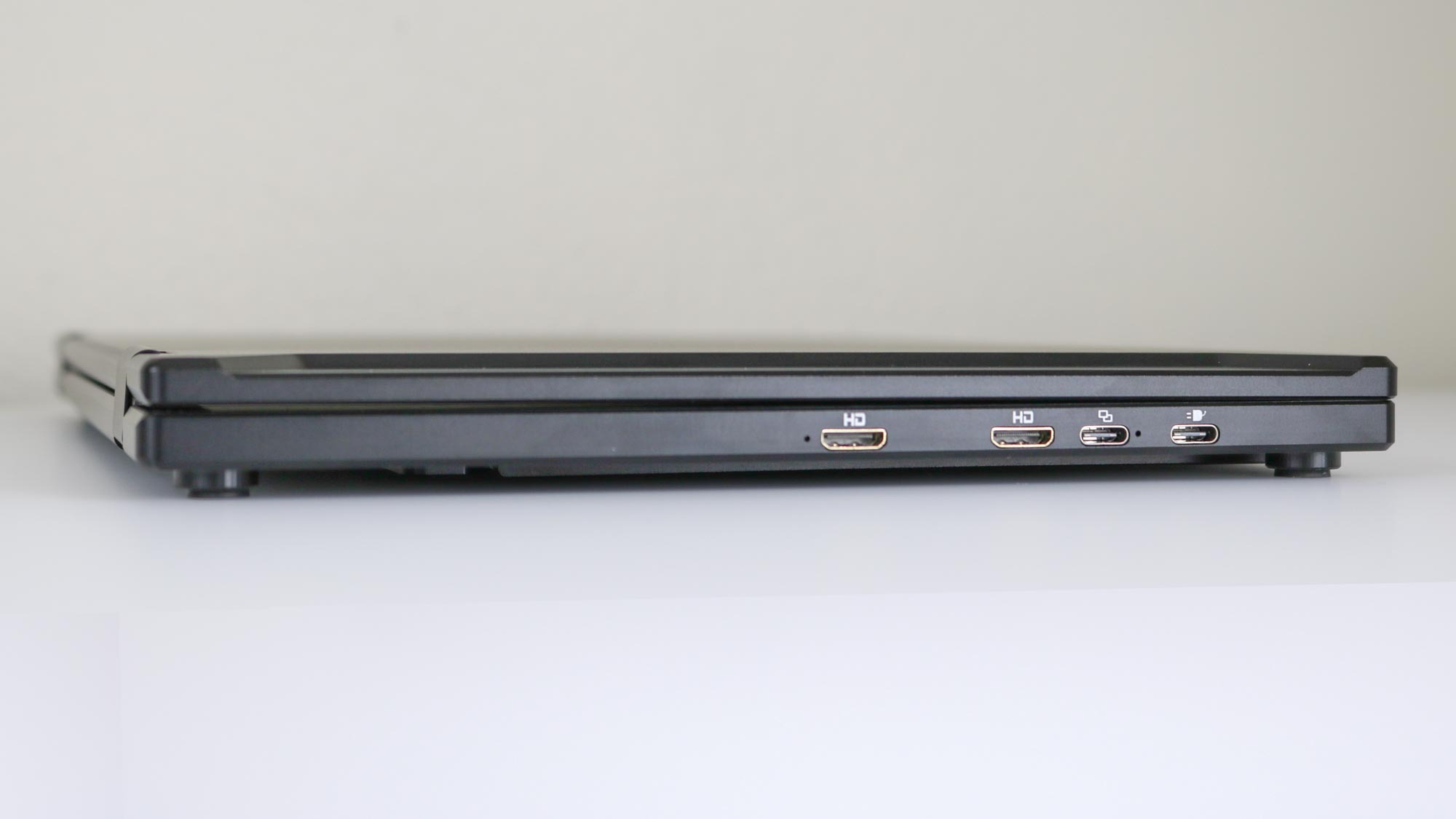
On the side of the UStation Delta, you’ll find two USB-C ports and two mini HDMI ports. While I would have liked to have a second, full-featured USB-C port, the one next to the first mini HDMI port is capable of driving both screens with a single USB-C cable. The one underneath is only for powering the UStation Delta but depending on the laptop you’re using, you might not need it at all. For instance, my ThinkPad is able to power both displays without needing to be connected to the wall, ideal for working from a coffee shop or even at the airport.
Unlike with some other portable monitors, UPERFECT provides all of the cables you need to make full use of the UStation Delta’s ports. You get two USB-C to USB-C cables for video, two mini HDMI to HDMI cables for connecting your desktop or even a game console and a single USB-A to USB-C cable for powering the device.
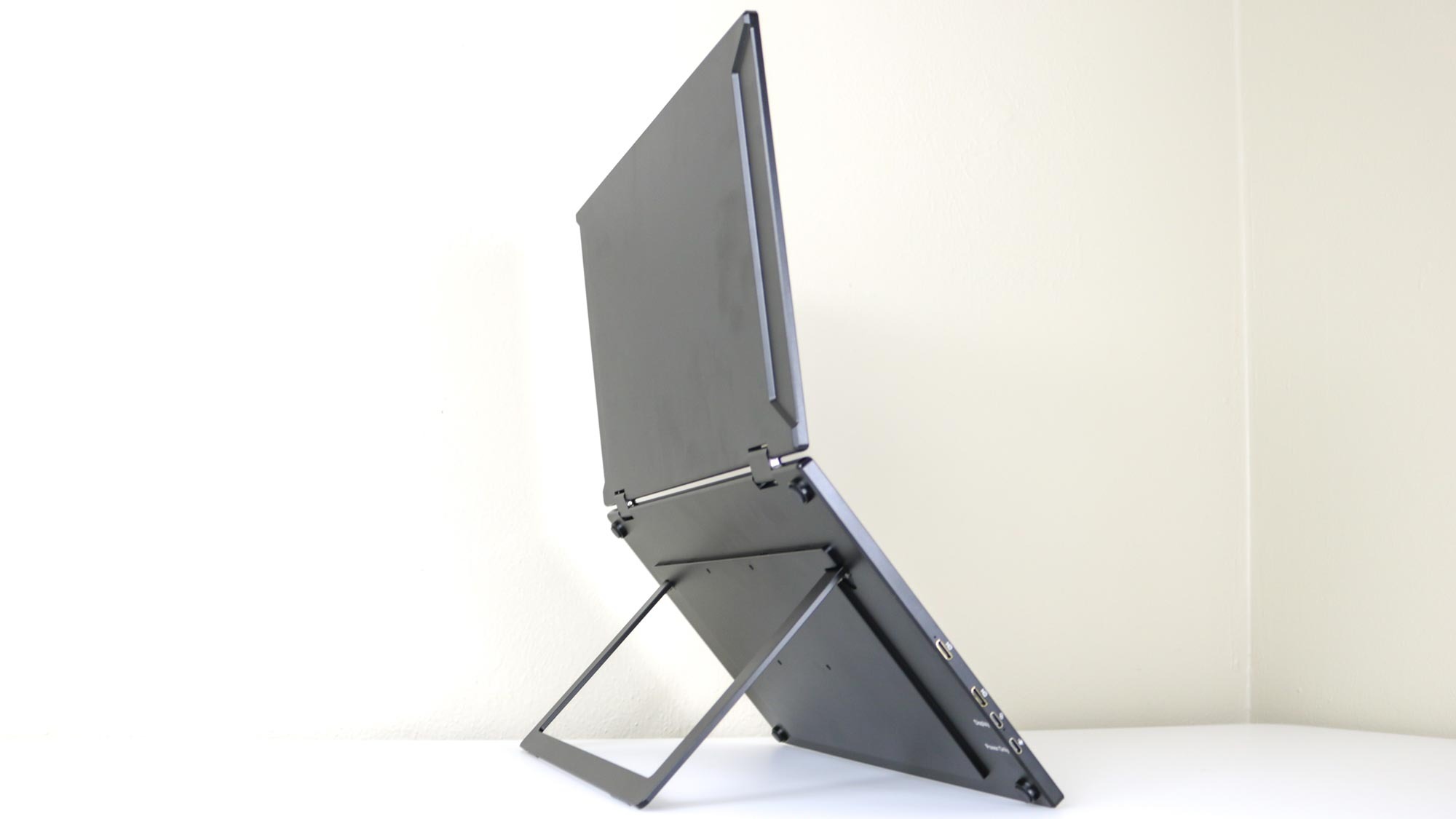
When you open up the UStation Delta, you’re greeted with two 15.6-inch Full HD displays. With the built-in stand pulled out to prop up the device, it almost looks like a budget version of the Lenovo Yoga Book 9i or the Asus Zenbook Duo. You will have to provide your own laptop or desktop computer and the UStation Delta doesn’t have a touchscreen but UPERFECT is working on an upgraded version of its dual-screen portable monitor with one built in.
One other thing I really liked about the UStation Delta right off the bat is that it has 75x75 VESA holes at the back. This way you can add the device to your desk setup if you don’t find yourself traveling or working from a laptop nearly as much as you used to.
A hassle-free multi-monitor experience
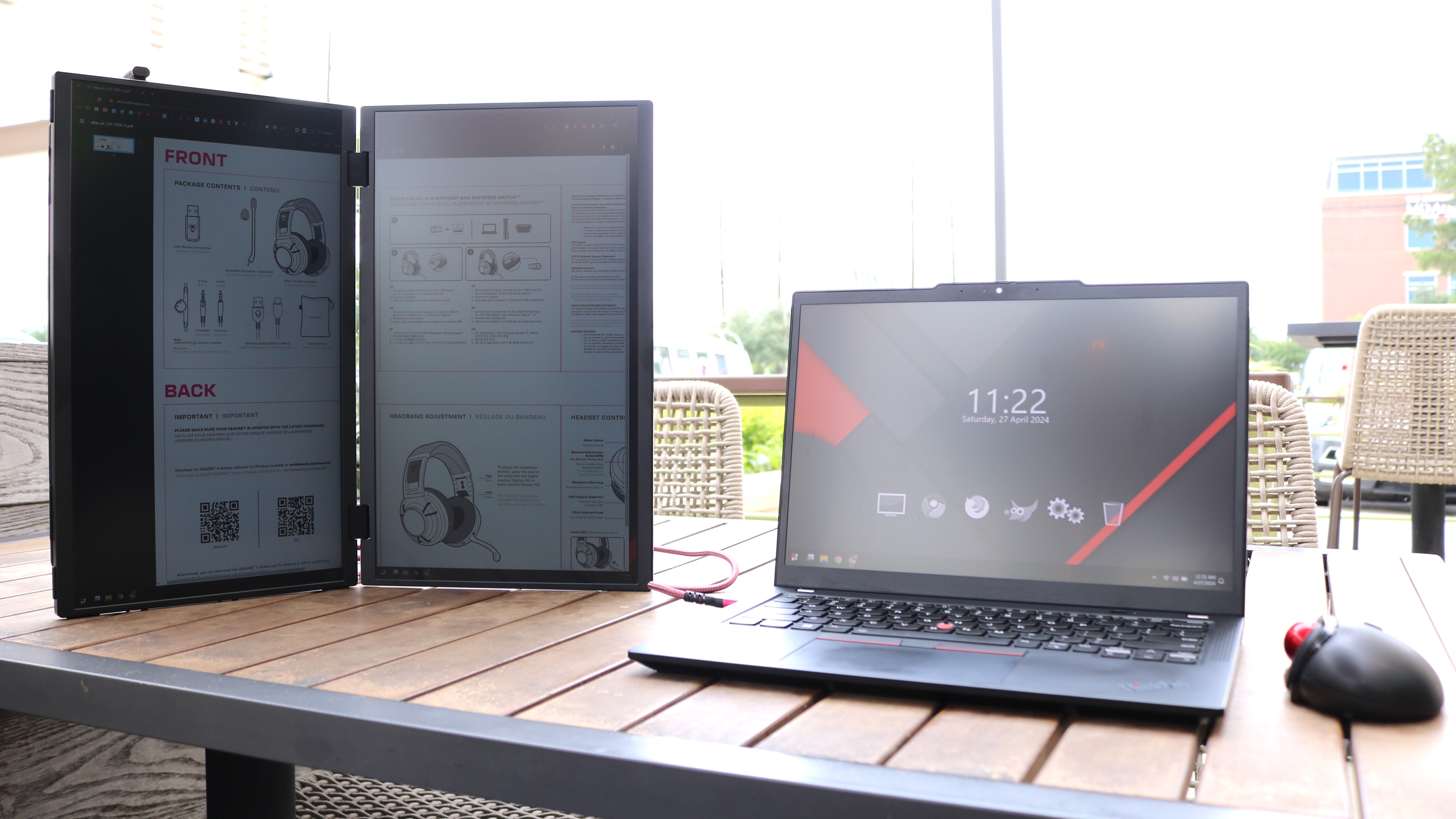
Since I don’t have any trips planned until this summer, I spent the past week using the UStation Delta around my house and while working from coffee shops. This way, I could see whether or not it would be worth bringing yet another device I need to take out when going through airport security.
Right from the get go, I like how quickly I can get it set up and working with my laptop. I just need to unfold the UStation Delta, get its kickstand where I want it and run a single USB-C cable from the monitor to my laptop. Rearranging the screens to get them to your liking in Windows takes a minute or so the first time around but once you get them arranged, they automatically line up the same way the next time you plug it in.
While using the UStation Delta with both screens stacked in landscape mode makes the most sense because of the built-in kickstand, I found that you can also use them in portrait mode. Your USB-C cable will jut out at the top though, so I recommend using one with a 90-degree angle or picking up an inexpensive USB-C elbow connector online. That’s exactly what I did in the picture above.
I did get a few stares when working this way at a coffee shop but I also had one passerby come up to me and compliment me on my setup. The UStation Delta’s displays feature a matte coating to prevent glare and they both have a refresh rate of 60Hz. If you want a faster refresh rate though, the UStation Delta Max Pro comes equipped with two 18-inch displays with a 144Hz refresh rate. Likewise, there’s also the regular UStation Delta Max which features two larger 18.5-inch displays, albeit with a 60Hz refresh rate.
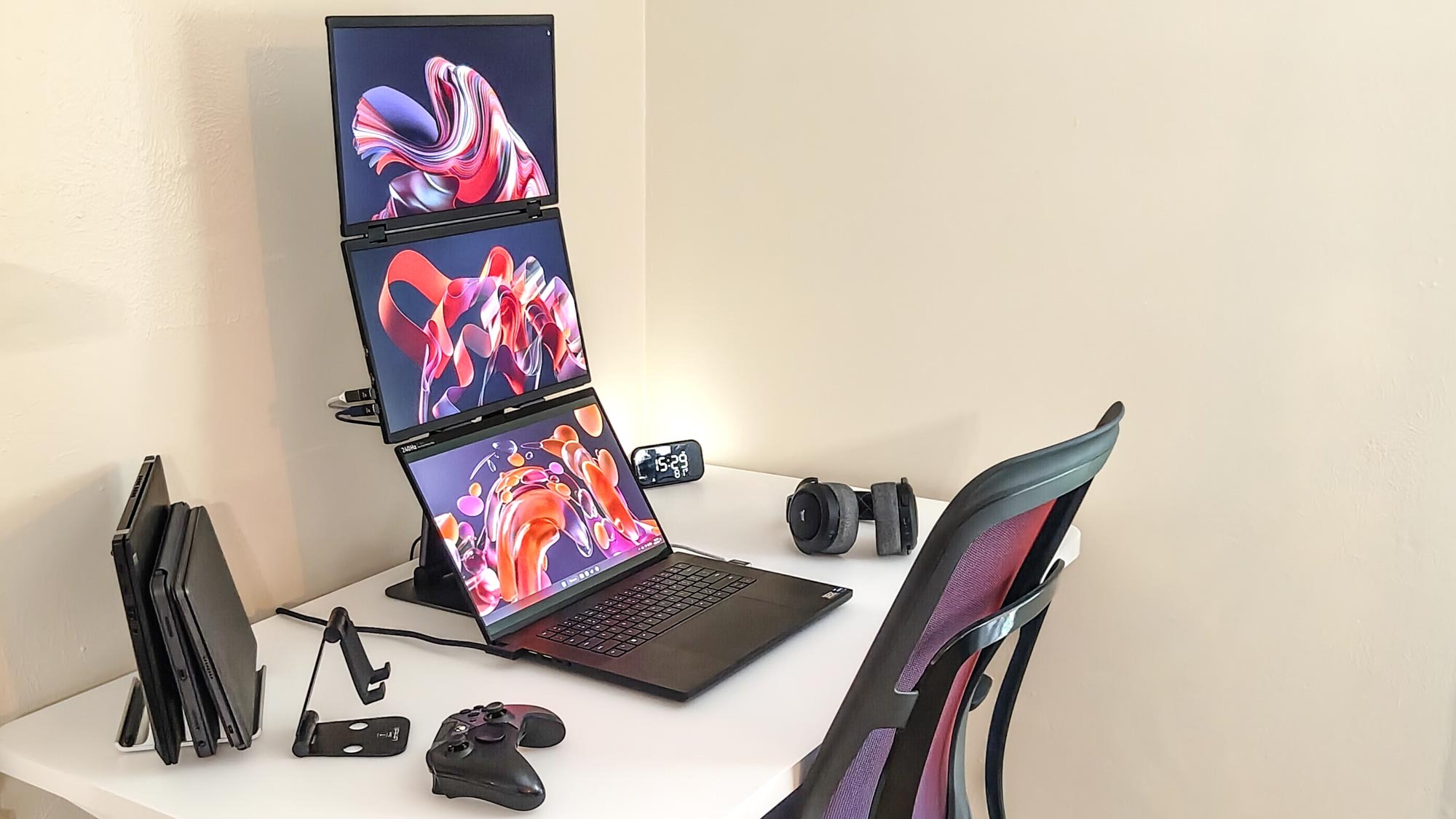
Back in the privacy of my own home, I put together the triple display setup of my dreams. As my 13-inch ThinkPad would look out of place under two 15.6-inch displays, I decided to use the Razer Blade 16 I’m currently reviewing instead. I used one of the best laptop stands to hold up the UStation Delta and put the laptop directly under it.
I did have to rearrange the way the displays were configured in Windows but this was a small price to pay to be able to work on a stacked three-screen setup. Certainly not practical when out and about but you could easily put something like this together for when you want to get some work done when you finally get back to the hotel after a long day.
Just like the best 2-in-1 laptops, the UStation Delta also supports tent mode where you fold the top display back and all the way around. This is useful for when you only want to use one of its two displays but it serves another purpose as well. Since you can connect two different devices to the UStation Delta, you can put it in tent mode and let someone else use one of its screens. While I haven’t had a chance to test this out on the road with someone else yet, it worked perfectly during the little test run I did on my kitchen table.
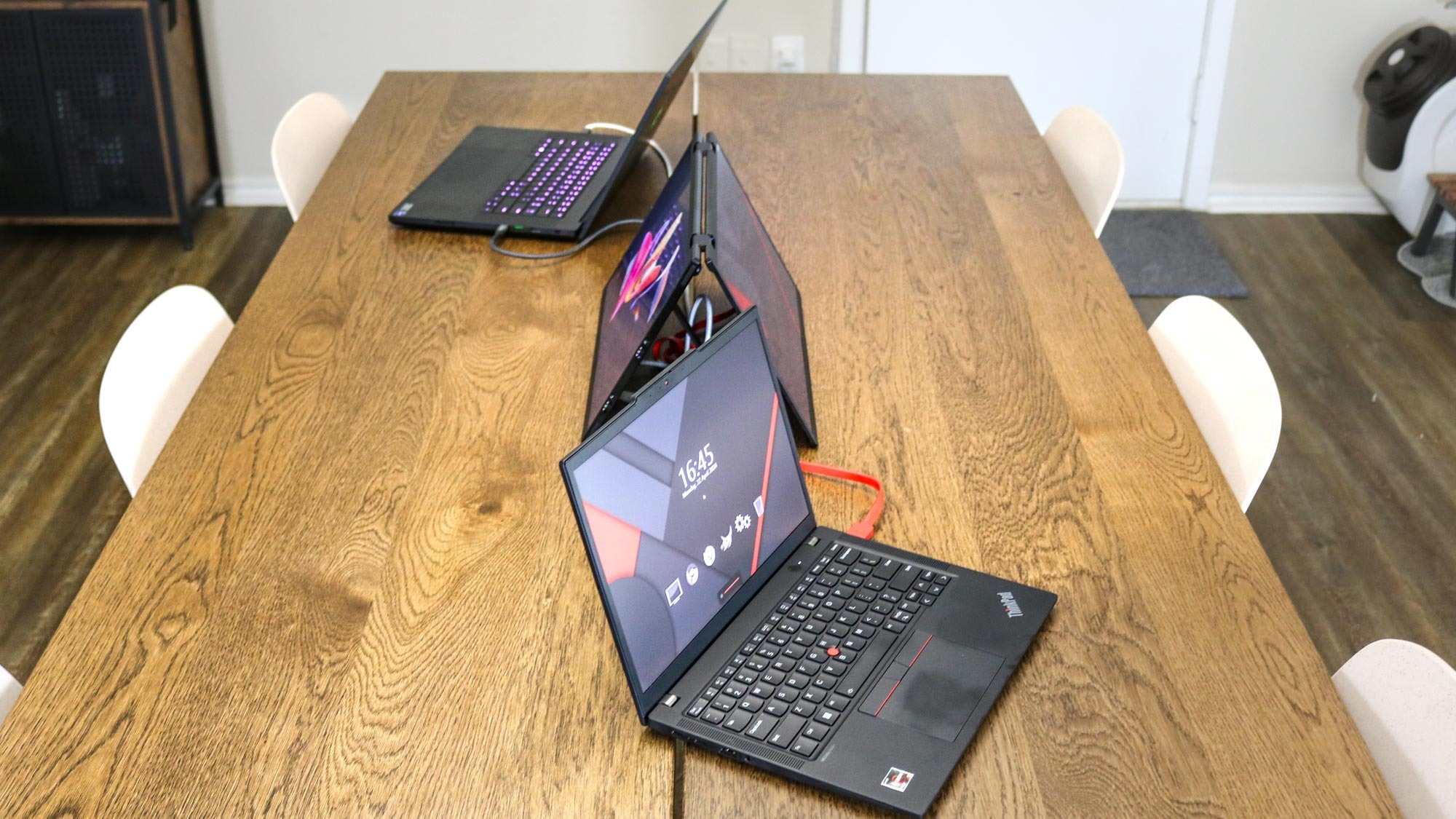
I plugged in both my ThinkPad and the Razer Blade 16, pushed a button on the side of the UStation Delta to rotate one of the displays and everything worked. It really is the type of setup you can switch to in less than a minute. Likewise, you can also use tent mode for when you want to control your laptop on one side and present what’s on its screen from the other.
Remember how I said I wish the UStation Delta had two instead of one full-featured USB-C port? This is the reason why. Although you can connect one laptop or device via USB-C, the other one has to be connected using one of its mini HDMI ports. You do get two mini HDMI to HDMI cables with the UStation Delta though.
However, if you want to use any HDMI cable (like the flat red one pictured above), I recommend getting a mini HDMI to HDMI elbow adapter. Fortunately, I had an extra one on hand after buying a two-pack to use with the touchscreen display underneath my ultrawide monitor.
From working by yourself with two extra displays in either landscape or portrait mode to being able to give a friend or colleague some extra screen real estate at a coffee shop or even in the office, there’s a lot to like about the UStation Delta and similarly designed dual-screen portable monitors.
Work from anywhere with the comforts of home
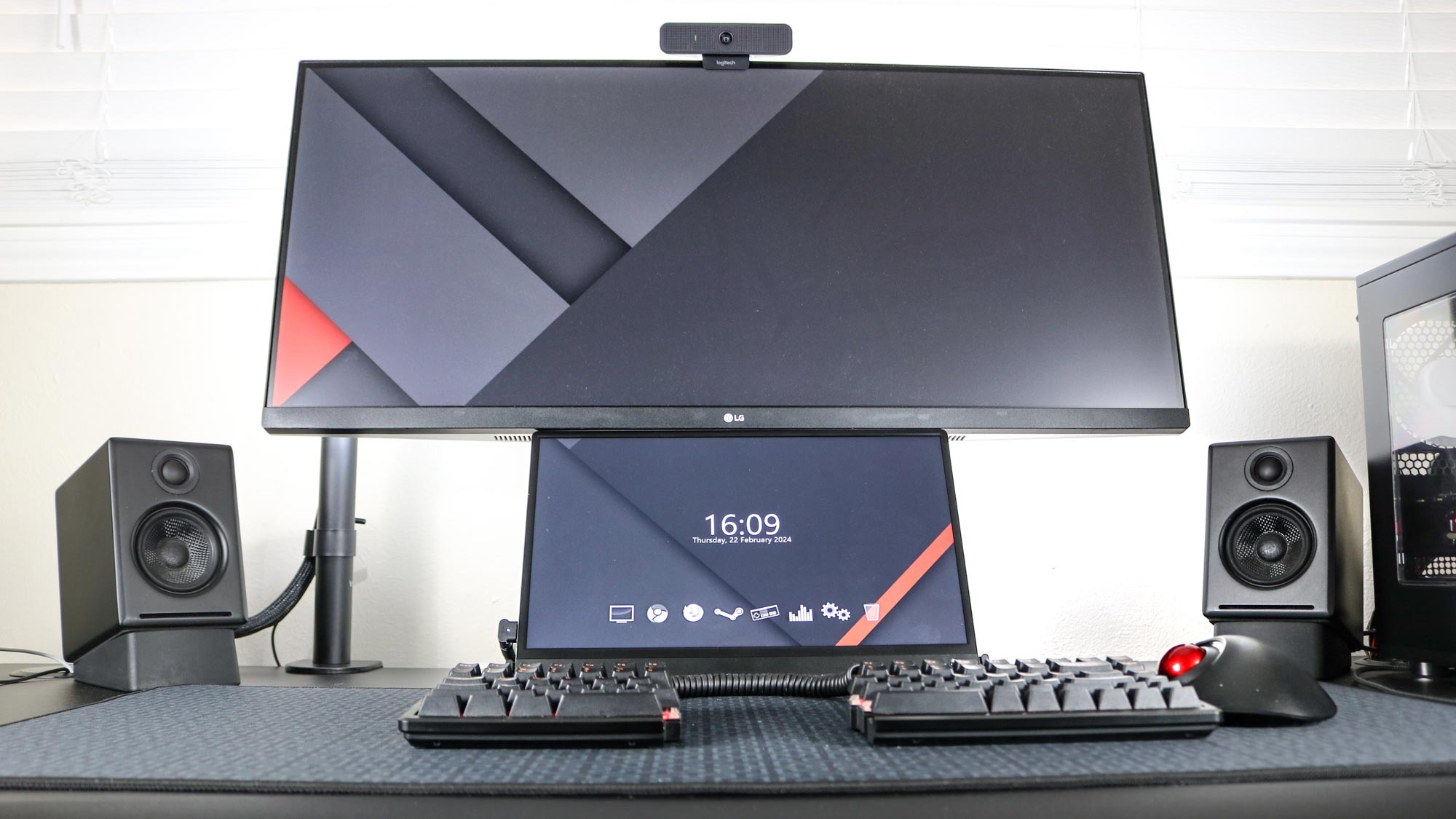
Don’t get me wrong, at $500, the UStation Delta isn’t exactly cheap. Instead, it’s more of an investment for road warriors and frequent flyers that want the versatility of multiple displays without the bulk of carrying around several portable monitors at once. If you fit either of those criteria, it just might be for you.
For me personally, I finally felt like I had the same amount of screen space when working from my laptop that I do at my desk while at home. As someone who prefers working on their desktop over a laptop any day of the week, this is absolutely worth the cost of admission in my opinion.
Even if the UStation Delta and other dual-screen portable monitors are out of your price range now, there’s still hope for the future. For instance, back when I bought my first portable monitor, I paid $250 and it needed to be hardwired to the wall for power. In just a few short years though, the price of portable monitors has come down significantly and now for less than $100, you can get a thinner device with better resolution that you can power directly from your laptop. If the UStation Delta and dual-screen portable monitors like it catch on, we could see them come down to around $200 or so in just a couple of years.
As it isn’t much bigger than your standard 16-inch laptop, I really couldn’t see a situation where I don’t take the UStation Delta with me on a trip. At CES this year, I brought my cheap UPERFECT portable monitor with me and it really made a difference when it came to getting things done while out and about.
With two screens instead of one though, I could have all of the programs I use and multiple browser windows open at the same time. I also really like how the UStation Delta’s clamshell design keeps the displays protected and I didn’t think twice when throwing it into my backpack when heading out. I still need to put this dual-screen portable monitor through the paces as part of my full review but for now, I think the UStation Delta could be the perfect accessory for power users when traveling.






